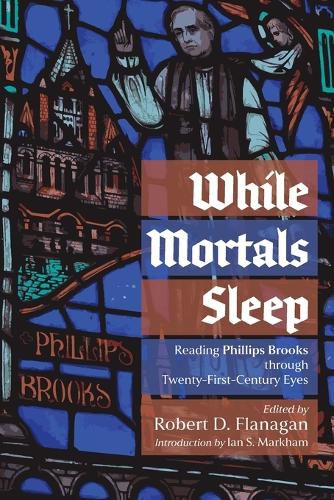Readings Newsletter
Become a Readings Member to make your shopping experience even easier.
Sign in or sign up for free!
You’re not far away from qualifying for FREE standard shipping within Australia
You’ve qualified for FREE standard shipping within Australia
The cart is loading…






This title is printed to order. This book may have been self-published. If so, we cannot guarantee the quality of the content. In the main most books will have gone through the editing process however some may not. We therefore suggest that you be aware of this before ordering this book. If in doubt check either the author or publisher’s details as we are unable to accept any returns unless they are faulty. Please contact us if you have any questions.
America's nineteenth-century preachers and religious leaders moved public sentiment and shaped the nation's moral character. Equally influencing events were America's preachers and religious leaders who moved public sentiment and shaped the nation's moral character. In that class of great religious figures is the Episcopal preacher and bishop Phillips Brooks. The Boston Brahmin and Harvard University graduate rose to heights as an anti-slavery clergyman and indefatigable pastor to congregations in Philadelphia and Boston. Yet, his many achievements must be balanced against his youthful arrogance and his shrewdness. This book examines the spiritual and moral character of Phillips Brooks (1835-1893) as evidenced through his life and ministry. The volume's eight essays recognize the most recent academic contribution, by Gillis J. Harp, Brahmin Prophet: Phillips Brooks and the Path of Liberal Protestantism (2003), but move beyond it in several crucial ways. This new work seeks to reevaluate Brooks, considering the early twenty-first-century social and racial conflicts and subsequent cultural soul-searching. The contributors portray Brooks as a man filled at times with hubris, classism, and prejudices and at other times with creative passion and pastoral concern for all peoples. While Mortals Sleep focuses less on the external influences upon Brooks and more on his actions and works within his historical context. The essays seek to show his legacy in a present-day light, illustrating Brooks at his best and worst.
$9.00 standard shipping within Australia
FREE standard shipping within Australia for orders over $100.00
Express & International shipping calculated at checkout
Stock availability can be subject to change without notice. We recommend calling the shop or contacting our online team to check availability of low stock items. Please see our Shopping Online page for more details.
This title is printed to order. This book may have been self-published. If so, we cannot guarantee the quality of the content. In the main most books will have gone through the editing process however some may not. We therefore suggest that you be aware of this before ordering this book. If in doubt check either the author or publisher’s details as we are unable to accept any returns unless they are faulty. Please contact us if you have any questions.
America's nineteenth-century preachers and religious leaders moved public sentiment and shaped the nation's moral character. Equally influencing events were America's preachers and religious leaders who moved public sentiment and shaped the nation's moral character. In that class of great religious figures is the Episcopal preacher and bishop Phillips Brooks. The Boston Brahmin and Harvard University graduate rose to heights as an anti-slavery clergyman and indefatigable pastor to congregations in Philadelphia and Boston. Yet, his many achievements must be balanced against his youthful arrogance and his shrewdness. This book examines the spiritual and moral character of Phillips Brooks (1835-1893) as evidenced through his life and ministry. The volume's eight essays recognize the most recent academic contribution, by Gillis J. Harp, Brahmin Prophet: Phillips Brooks and the Path of Liberal Protestantism (2003), but move beyond it in several crucial ways. This new work seeks to reevaluate Brooks, considering the early twenty-first-century social and racial conflicts and subsequent cultural soul-searching. The contributors portray Brooks as a man filled at times with hubris, classism, and prejudices and at other times with creative passion and pastoral concern for all peoples. While Mortals Sleep focuses less on the external influences upon Brooks and more on his actions and works within his historical context. The essays seek to show his legacy in a present-day light, illustrating Brooks at his best and worst.